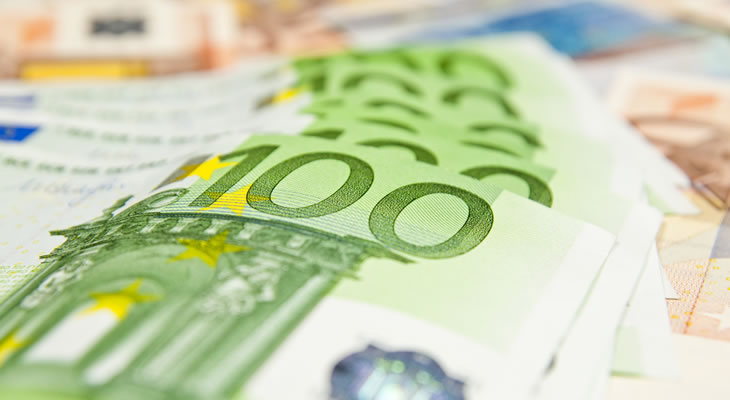Following weaker-than-expected Eurozone inflation data the mood towards the Euro has remained relatively bearish, even as the domestic labour market continued to tighten.
As the consumer price index dipped from 1.9% to 1.4% on the year this undermined speculation that the European Central Bank (ECB) could return to a tightening bias in the near future.
Bert Colijn, Senior Economist at ING, noted:
‘Businesses have recently been indicating that selling price expectations have been weakening again and wage growth is still very weak. The lower oil price and stronger euro are causing import prices to decline, while base effects in energy prices are also putting pressure on headline inflation in the months ahead. This means that further weakness in headline inflation in 2017 is more likely than a rebound to 2%.’
This gave investors little reason to favour the single currency, with the ECB looking set to maintain its expansive monetary policy for some time to come.
However, a solid raft of Eurozone manufacturing PMIs helped to boost the Euro Pound exchange rate on Thursday morning.
With the domestic economy continuing to demonstrate robust signs of growth demand for the Euro recovered somewhat, even though concerns over the outlook of Greece remain.
Investor confidence could strengthen further if May’s services PMIs also prove encouraging, with forecasts pointing towards resilient levels of economic activity across the currency union.
However, if the data indicates any faltering in momentum the EUR GBP exchange rate could come under renewed pressure.
Increased volatility is likely for the Pound, meanwhile, in the final days of the general election campaign.
Sterling remains particularly sensitive to domestic political developments, with markets reacting sharply to the release of various opinion polls.
While YouGov polls continue to suggest a narrowing of the Conservative lead, however, this has been at odds with other surveys.
Although investors are inclined to take these forecasts with a pinch of salt the Pound is likely to remain jittery until the actual results of the election are known.
If the prospect of a hung parliament seems more likely, though, this could offer support to the EUR GBP exchange rate in the near term.
As Brexit uncertainty continues to hang over the outlook of the UK economy any added element of political instability could weigh heavily on Sterling, with GBP exchange rates likely to slump if Theresa May fails to gain an increased majority.
Even though the impact of domestic economic data looks set to remain limited ahead of the election result any weakening in the May services PMI could add to the bearish mood of the Pound.


Comments are closed.